On October 13, in Hanoi , Deputy State Auditor General Bui Quoc Dung attended and delivered the opening speech at the international conference with the theme "Auditing in the new era - Enhancing auditing capacity with AI".
The workshop gathered 120 delegates from central agencies, ACCA, domestic and foreign auditing companies, banks, research institutes, universities and professional associations in the field of finance and auditing.
How auditing is shifting from “reactive” to “proactive” thanks to AI
Speaking at the opening of the workshop, Deputy State Auditor General Bui Quoc Dung said that never before in human history has technology changed as quickly and profoundly as it does today. According to Mr. Dung, AI is reshaping every industry, from manufacturing, finance to healthcare and education .
He pointed out that the auditing industry, with its mission of ensuring transparency and accountability in public administration, is not outside of that flow. The Deputy State Auditor General also commented that for auditors, AI is not only a tool but also an opportunity to reinvent the way of thinking and acting.

Deputy State Auditor General Bui Quoc Dung at the international conference with the theme "Auditing in the new era - Enhancing audit capacity with AI" (Photo: SAV).
According to him, auditing is based on evidence and inference. In the traditional model, due to time and resource constraints, auditors have to select representative samples and then infer the overall picture from those pieces. This limits coverage and makes it especially difficult to keep up with the continuous flow of data.
However, the advent of AI and big data analytics has created a turning point. Instead of “discrete pixels”, auditors can scan and analyze entire datasets, thereby increasing assurance, reducing subjective bias and increasing consistency in assessments. At the same time, machine learning, deep learning and natural language processing algorithms transform huge repositories of unstructured documents and records into information that can be accessed, searched, collated and explained.
At that time, auditing does not stop at detecting later, but can predict trends of errors, waste, and fraud to intervene early - a step from reaction to proactivity.
Mr. Dung pointed out that many supreme audit agencies have shifted from post-audit to comprehensive monitoring and risk prediction. Causal analysis techniques have been introduced to go beyond pure correlation to assess the real impact of policies.
In parallel, virtual audit assistants based on large language models (LLMs) that enable automated lookup, reconciliation, and drafting; continuous monitoring of tens of millions of benefit transactions per month is no longer an idea but an operational reality.
Behind these successes are the integration of multi-source data - breaking down "data silos" between agencies - and the deployment of machine learning, natural language processing technology (helping machines understand and analyze text), geographic information systems (helping monitor data linked to spatial locations), and clustering techniques, mining association rules to form a "360-degree view" of the monitored object.
Audit industry leaders emphasize that this is not a technical detail but a paradigm shift for the public auditing profession, from “periodic conclusions” to “continuous monitoring”, from “small samples” to “full analysis”, from “describing the past” to “predicting the future”.
He also pointed out the experience of countries that have applied artificial intelligence early in the auditing field.
In the US, the Government Accountability Office (GAO) has introduced AI into federal financial, healthcare , and banking risk oversight, dramatically reducing time, expanding the scope of analysis, and increasing the weight of evidence.
In the UK, the UK National Audit Office (NAO) applies AI in social welfare, health, public contracts and builds a “playbook” for using AI safely, helping to save the budget through fraud prevention.
In Pakistan, AI was used to detect 128,000 cases of “ghost pensioners” in pension payments, a testament to the power of data when connected intelligently.
State Audit builds technology ecosystem with 6 AI applications
According to Deputy State Auditor General Bui Quoc Dung, Vietnam is not outside that trend.
In reality, the volume and complexity of public data in Vietnam is gradually outstripping what traditional auditing methods (which rely mainly on sampling) can cover.

Deputy State Auditor General Bui Quoc Dung attended and delivered the opening speech at the workshop on the morning of October 13 (Photo: SAV).
Mr. Dung gave examples from a number of agencies under the Ministry of Finance.
At Vietnam Social Security, there are 17 million compulsory social insurance participants each month; 96 million health insurance cards are issued each year and more than 200 million medical examinations and treatments related to insurance payments are processed. Or the Tax Department, by the end of last year, had more than 950,000 businesses declaring taxes electronically, submitting nearly 16 million records and nearly 150 million declarations.
According to Mr. Dung, these are huge data pictures, continuously updated in real time, and if we continue to process them using traditional manual approaches, we will risk missing systemic risks and reduce the reliability of audit conclusions.
The State Audit has chosen a proactive path: building a data platform, connecting and sharing with key ministries and branches, preparing storage and processing infrastructure, and simultaneously implementing AI projects that directly solve the professional problems of public audit.
Accordingly, this agency has initiated a big data platform, selected a suitable technology architecture and connected and shared with the Ministry of Finance, Vietnam Social Security, and the State Bank, creating a data warehouse of over 100 million records to serve audit analysis.
“We have built an audit technology ecosystem, in which 6 AI and data application software are being deployed in practice: from budget data analysis, risk assessment, financial transaction examination, to public investment monitoring and green spending assessment. Those initial results confirm: AI does not replace auditors, but makes auditors stronger, more accurate, and more profound,” said Mr. Dung.
In conclusion, Mr. Dung affirmed that AI not only helps detect violations faster, but also helps forecast risks, recommend policies and support public financial management decisions - in line with the spirit of transitioning from "post-audit" to "smart, proactive, real-time audit".
Source: https://dantri.com.vn/kinh-doanh/pho-tong-kiem-toan-nha-nuoc-bui-quoc-dung-ai-tai-dinh-hinh-nghe-kiem-toan-20251013103016681.htm





![[Photo] Solemn opening of the 1st Government Party Congress](https://vphoto.vietnam.vn/thumb/1200x675/vietnam/resource/IMAGE/2025/10/13/1760337945186_ndo_br_img-0787-jpg.webp)






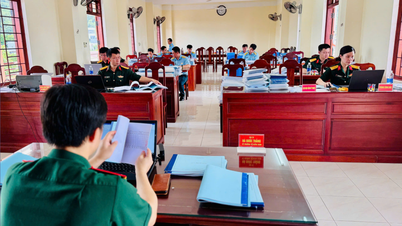



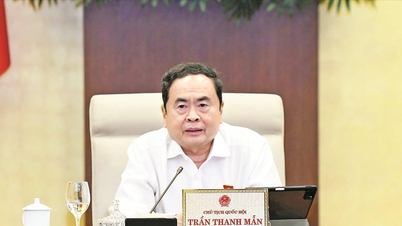

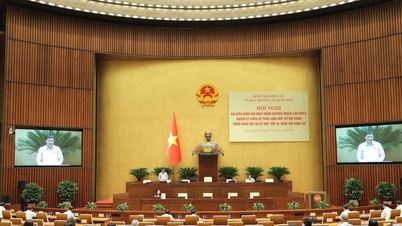





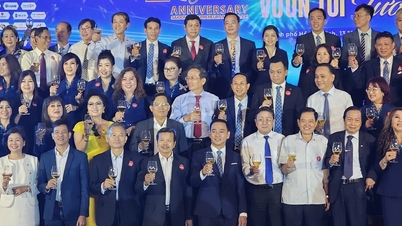







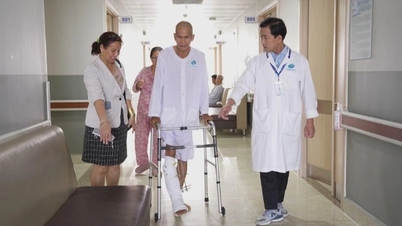




![[Photo] General Secretary To Lam attends the opening of the 1st Government Party Congress](https://vphoto.vietnam.vn/thumb/1200x675/vietnam/resource/IMAGE/2025/10/13/1760321055249_ndo_br_cover-9284-jpg.webp)




















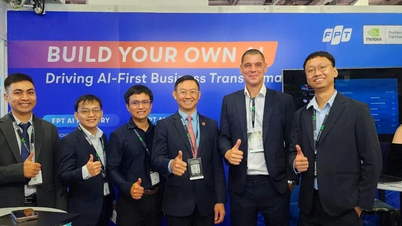








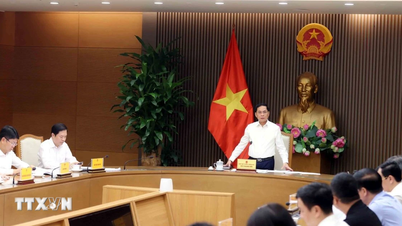



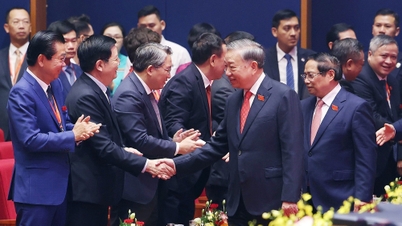






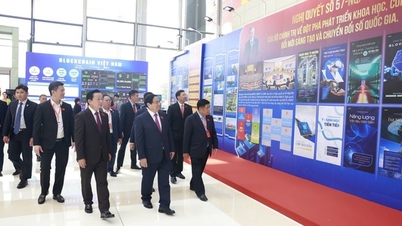
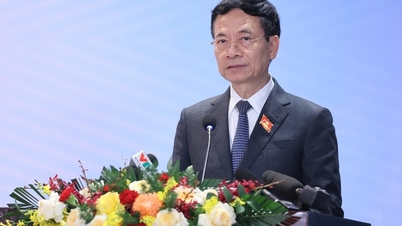























Comment (0)